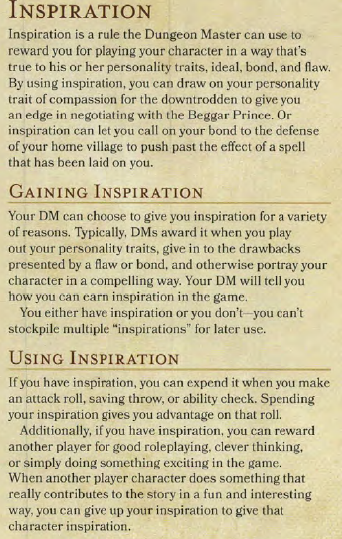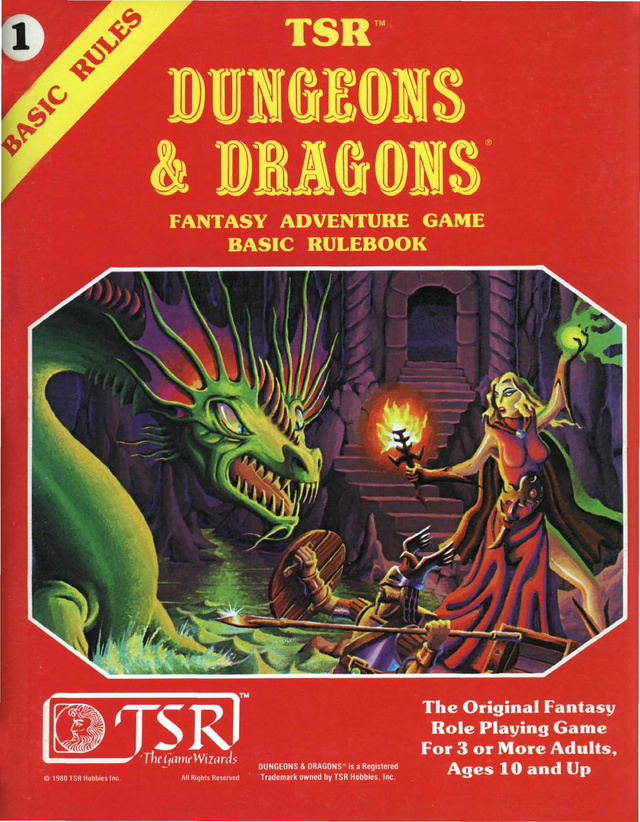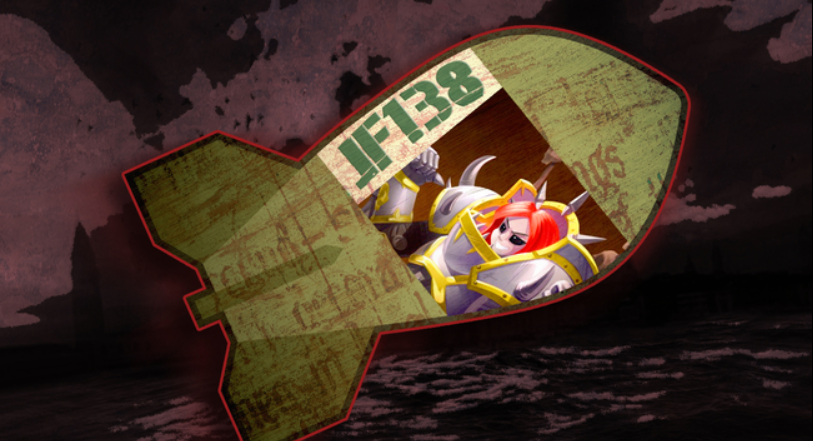Playing The Game Wrong: Inspiration

Continuing in the vein of bitching about D&D because it's been on my mind a lot lately, recently I found out about the FERAL rpg. This one's in development, but it looks really cool for what's there in the playtest. From what I've been told it's basically a mashup of the old Teenage Mutant Ninja Turtles ttrpg from the 80s (now known as After The Bomb because licensing is a beyotch) and D&D 5e.
You can probably see where this is going.
So in an effort to understand FERAL I had to, out of necessity, get ahold of the 5e Player's Guide, which I did. The things I put up with, I tell ya. I figure the best way to understand character creation so I can explain it to other people is to go ahead and make a bunch of characters. This I did, and I found out some incredibly head-scratchy and disturbing things about the design of 5e that, coming as I am off of about a year of OSR and B/X high, made me very confused. And given that this blog is my place to bitch about things that annoy me, that's what I'm gonna do!
The first of these things that viscerally repelled me on a spiritual level, like a Catholic watching a streetwalker do unspeakable things with a Eucharist wafer, was this little thing called Inspiration. What is Inspiration, you ask? Well, I'm glad you did because now I get to show you this abomination from the 5e guide so you can feel my pain right along with me because misery loves company.

Now I shouldn't have to explain why this is bad and wrong but I'm gonna anyway. This must be something they took from 4e or created specifically for 5e or dredged up from the pits of girl D&D hell specifically to torment people like me who are used to rolling with the punches in our tabletop games. As I explained in my last post the dice in a tabletop game that uses them (diceless systems exist, they're just not all that common in my experience), the dice are meant to represent and embody the "luck" component of any encounter.
For example, B/X D&D has three major mechanics governing encounters which are The Alignment System, The Monster Reaction Table, and the Retainer Reaction Table. If you wish to truly give yourself up to the whim of the Gods of Random Chance as Gygax intended, you let the dice do the talking at the tabletop. You choose your Alignment in character creation or roll a d3 (there's only Lawful, Neutral, and Chaotic, and none of those are inherently evil or good), and that's supposed to govern how your character reacts to stimuli in the world.
So a Chaotic character might stick with the party for a while, but if an encounter goes badly they might just run off out the back with as much loot as they can carry while the rest of the group dies horribly to unknowingly facilitate them saving their own skin.
The monster reaction table is meant to decide how monsters in the dungeon react to the players showing up and wrecking face. It ranges from "Instant Attack" to "Enthusiastic Friendship", and is rolled on a 2d6. There's more chance the monsters will actually talk to the characters to find out what they're doing down here, because almost everything except for dumb animals in the dungeons are chaotic and they'll betray their masters in a heartbeat for a shiny new dime and a glass of soda.
If the dice are on your side, that is.
The retainer reaction table is much like the monster reaction table, only it's meant to govern how well or badly hirelings take to your offer of shinies and dangerous adventure. It's also a 2d6, and ranges from "Offer refused and every other potential retainer is adjusted by -1" to "Offer accepted and they get +1 to morale". Once again, letting the dice decide things like this is a big part of the fun of the game, because thanks to the luck and chance components you never really know what's gonna happen.
So the reason I explained all that crap to you is this: You're supposed to rely on the dice. They are your guides through the valley of the shadow of death, your saviors in time of trouble. They're also the sadistic little bastards that just let you get eaten by a wolf even though you're wearing full plate armor. Even when my misguided self was playing 3.5 back in high school (don't be too harsh, it was the only ttrpg I knew existed and quite literally the only game in town), half the fun of the game was rolling those knucklebones and seeing what came up.
This applies even more when we're talking about the things that this 5e mechanic of Inspiration governs: Attacks, Saving Throws, and Ability Checks. These are the meat and potatoes of a D&D campaign, it's what you'll probably spend the most time rolling over, and as I said half the fun is seeing what happens when you roll those dice and dealing with the consequences, good or bad.
For those unfamiliar, attacks are pretty self explanatory, but saving throws are when something really bad happens to you and you need to see if it affected you or not. This can be getting hit by poison, a spell, a magic wand, or even dragon's breath. You have a chance to roll to escape it, and getting to re-roll that is just playing like a sissy.
There's no other way to put it. This is straight bitch-made, right here.
In the older versions of the game you dealt with what the dice gave you. Like I said in my last post, character death is supposed to be a thing, and while you have a chance to survive this stuff, you have a chance to not survive it as well. The tension and suspense of rolling the dice and seeing what happens is a fundamental part of the game.
Ability checks are less deadly (usually) but still pretty important. Less so in B/X unless you're a thief, but any character can try to do a thing and roll to see if they're successful. Trying to climb a wall, jump a cavern, do a little dance, make a little love, get down tonight, all of them can be tied to an ability the character has and can be checked against a roll on a d20 (or various other dice, depending).
The way Inspiration seems to work from that small explanation (the only one in the rulebook, by the by, but maybe the DMG has other info on it, I haven't cracked that tome of horrors yet), is basically if the player is a good role-player, or comes up with a clever solution to a problem, or does a good in a fight, they gain a point of inspiration to be used to re-roll a dice throw that came up in the negative for them. This is, primarily it seems, meant to encourage the narrative play that people like Pundy, Bradford, and myself have been shouting into the desert about lately.
And I took a bit of heat from Misha Burnett over that last post because I am contending that there is a right and wrong way to play D&D, so I should say this right here: Having a narrative in your D&D game is not an inherently bad thing. There's a narrative in The Temple of Elemental Evil, for god's sake (the module I'm currently running). Granted, it's mostly about getting into the Temple and cracking The Skulls of Elemental Evil, but there are extensive parts of that module dealing with Hommlet and Nulb and the various people in them. Every named NPC has a backstory, and can be called upon to influence the game in various ways to the aid or detriment of the players.
So I'm not saying having narrative is bad, and I'm not saying role-playing is bad. Could've fooled you, right? What I'm saying is that letting those take over the game to the exclusion of all else is bad and Not Fun™. Trust me, I've been there. I actually prefer a little role-playing in my games. It leads to interesting and fun moments that get laughs and groans from everybody at the table and adds to the overall fun of the game. What's bad is letting the role-play and the Way The DM Thinks The Story Is Supposed To Go™ take over.
I should also mention there are plenty of narrative games out there I have no issue with. They're purely meant to facilitate role-playing, and good for them. No, serious as a heart attack, good for them. Different strokes for different folks, I'm a libertarian at heart, and I'm not going to show up at your table and tell you to your face that you're playing the game wrong. If I'm a player I'll probably just quietly see myself out, if I'm not involved well then I'm just glad you're having a good time because it doesn't effect me at all how you play your D&D sessions.
However I am entitled to my opinion, and my opinion is that there is a right and wrong way to play the game, and inspiration is most definitely wrong. If you missed your roll trying to attack the Big Bad Evil Guy, sack up and deal with it and pray to the Dice Gods for a more favorable roll next time. Likewise for saving throws and ability checks. Failure is part of the game, and indeed without it the fun, in my opinion, doesn't exist.
Don't get me wrong, I like to get absolutely fucking shitfaced hammered and play a first-person shooter on easy mode and just godhand every single measly motherfucker with the bad luck to be in my crosshairs just like any red blooded American. But unless I'm so drunk I literally can't see straight, there's no challenge in that, and the challenge is where the fun of games like FPS's and ttrpg's lies. That knowledge that the next encounter could be the last is what makes the game exciting and memorable.
The narrative-above-all-else style of gaming that mechanics like Inspiration encourage is just an inferior style of game. If that's your thing, then go for it and good luck, but you're essentially cheating the dice just like if you loaded them. You're stacking the odds in your favor so that fewer bad things have the chance to happen to you.
That last part is in italics for a reason. It's not that those bad things will absolutely happen if you don't use an Inspiration-style mechanic in your game, it's that they have a chance of happening, just like you have a chance to fudge that second roll. But what a mechanic like Inspiration does is effectively put the player characters one or two steps closer to being invincible, and as One Punch Man has shown us, winning every encounter with little to no challenge is just plain boring.
What a mechanic like Inspiration says to me is that the players are too sissified to be able to deal with the consequences of their own dice rolls without getting to shout, "Do over!" like a child on the playground who missed the pitch in a stickball game. It's a fundamental disrespect to the people who are playing the game, along with the DM. Kids in the 80's loved and reveled in games like B/X where you dealt with your dice rolls like a man and came back swinging next round. Kids in the 2000's dealt with it too, although 3.5 was already sliding down the winding slope that led to this game basically spitting in your face like this.
A friend of mine on twitter (I believe it was J.D. Alden, but I apologize if I'm misremembering) also foresaw that this could start actual no-shit fights at the tabletop and ruin gaming sessions. Now I don't know how true that is, I've never heard stories about that happening, but I could see it happening. Some player who's really up in themselves about the role-playing thinks they're entitled to a point of inspiration because they're playing a chaotic evil tiefling and they just act like an absolute cock to everyone. But, like I said, I've never heard of this happening, I just admit that it's a possibility.
But anyway, I think I've come to why this is bothering me enough to write this long-ass screed about it. This is insulting to everyone who picks this book up expecting a good game. They're effectively saying that you can't handle what children four+ decades ago could. I, for one, don't put up with that kind of crap from anybody, let alone a WOTC drone who insults potential customers on social media.
So really the choice comes down to this: Are you going to play a game that spits in your face and treats you like an infant, while at the same time playing the game wrong considering what type of game it actually is?
Or are you going to see the light and come over to the Proper Way To Play™?


If you enjoyed this post, you can find more like it on my website or my steemit page. I also have free action and adventure short fiction available from my Original Fiction page, as well as in the anthology Darkest of Dreams from DimensionBucket Media. Feel free to check out my weekly podcast too, as well as audiobooks I've produced, and if you feel so inclined you can throw me a tip at Ko-fi.